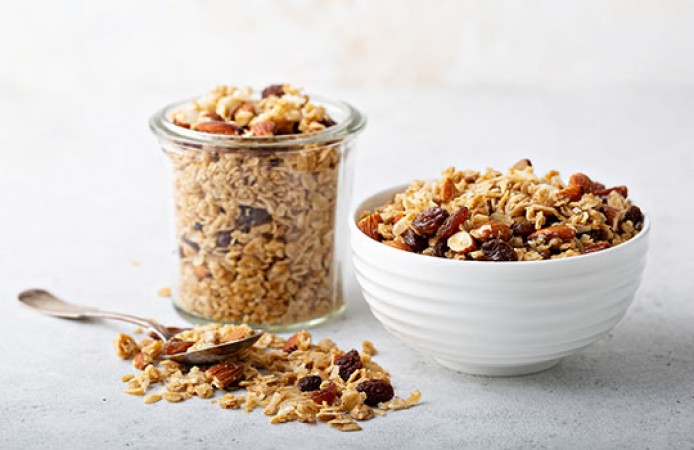
In our quest for a longer and healthier life, the role of nutrition cannot be underestimated. Among the various dietary choices available, one stands out for its exceptional benefits: whole grains. These unrefined, nutrient-rich grains have garnered increasing attention for their ability to fuel longevity. In this article, we'll delve into the science behind whole grains, exploring how they provide sustained energy and contribute to an extended and vibrant life.
The Pursuit of Longevity
The desire for a longer, healthier life has been a driving force for human innovation and exploration. Throughout history, people have sought the elixir of life in various forms, from legendary fountains to modern scientific breakthroughs. While no single solution can promise immortality, certain lifestyle choices, including diet, play a pivotal role in enhancing the quality and duration of our lives.
What Are Whole Grains?
Whole grains are a category of grains that retain their outer bran layer, endosperm, and germ intact, as opposed to refined grains that have undergone processing to remove these nutrient-rich components. Examples of whole grains include quinoa, brown rice, oats, and whole wheat.
Nutritional Powerhouses: The Nutrients Found in Whole Grains
Whole grains are nutritional powerhouses, packed with essential vitamins, minerals, and dietary fiber. They contain B vitamins, such as niacin, thiamin, and riboflavin, which are crucial for energy production and overall well-being. Additionally, whole grains provide minerals like magnesium, iron, and zinc, which support various bodily functions.
The Science of Sustained Energy
Complex Carbohydrates: The Foundation of Enduring Vitality
Complex carbohydrates are the primary source of energy for our bodies. Whole grains contain complex carbohydrates that are digested slowly, providing a steady release of energy over an extended period. This sustained energy release helps avoid energy crashes and keeps us alert and focused throughout the day.
Fiber: Aiding Digestion and Preventing Energy Slumps
Fiber is abundant in whole grains and plays a pivotal role in digestion. It adds bulk to stool, aiding in regular bowel movements and preventing constipation. By maintaining a healthy digestive system, whole grains contribute to overall well-being and sustained energy levels.
Beyond Energy: Additional Benefits of Whole Grains
Heart Health: Nurturing a Strong and Resilient Cardiovascular System
Whole grains have been linked to improved heart health. The fiber, antioxidants, and phytochemicals present in whole grains collectively contribute to reducing the risk of heart disease by lowering cholesterol levels, supporting healthy blood pressure, and promoting proper blood vessel function.
Weight Management: The Satiating Effect of Whole Grains
Incorporating whole grains into your diet can aid in weight management. The high fiber content of whole grains promotes a feeling of fullness, curbing overeating and helping to maintain a healthy weight.
Blood Sugar Control: Preventing Spikes and Crashes
Whole grains have a lower glycemic index compared to refined grains, meaning they cause slower and more controlled rises in blood sugar levels. This characteristic is essential for preventing sudden spikes and crashes in energy, making whole grains a valuable choice for individuals with diabetes or those aiming to stabilize their energy levels.
Longevity and Disease Prevention
Antioxidants: Shielding Cells from Premature Aging
Antioxidants are compounds that help protect cells from damage caused by harmful molecules called free radicals. Whole grains are rich in antioxidants, which play a crucial role in preventing premature aging and reducing the risk of chronic diseases.
Inflammation Reduction: A Key to Slowing the Aging Process
Chronic inflammation is a contributing factor to various age-related diseases. The phytonutrients found in whole grains possess anti-inflammatory properties, helping to mitigate inflammation and promote a healthier aging process.
The Whole Grains Lifestyle: Practical Tips for Incorporation
Whole Grain Varieties: A World of Choices
The market offers an array of whole grain options, each with its unique flavor and texture. From quinoa's nutty taste to the chewiness of barley, experimenting with different whole grains can add variety and excitement to your meals.
Cooking with Whole Grains: From Breakfast to Dinner
Incorporating whole grains into your meals can be both simple and delicious. Swap out refined grains with whole grains in dishes like oatmeal for breakfast, quinoa salad for lunch, and brown rice stir-fry for dinner.
Snacking Smart: Whole Grain Options on the Go
Even snacking can align with a whole grains lifestyle. Opt for whole grain granola bars, popcorn, or whole wheat crackers for a satisfying and nutritious snack between meals.
Embracing Whole Grains: A Cultural Perspective
Throughout history, various cultures around the world have incorporated whole grains into their traditional diets. From the quinoa-rich Andean region to the rice-loving cultures of Asia, whole grains have long been recognized for their nutritional value and role in promoting longevity.
Nourishing Your Path to a Longer Life
Incorporating whole grains into your diet is a simple yet impactful step toward fueling longevity. By providing sustained energy, supporting heart health, and contributing to disease prevention, whole grains offer a holistic approach to enhancing your well-being and enjoying a vibrant, extended life.
Food that can give you a longer Life
7 Foods You Should Never Refrigerate
Coupang to expand its investments in Taiwan after enormous profits